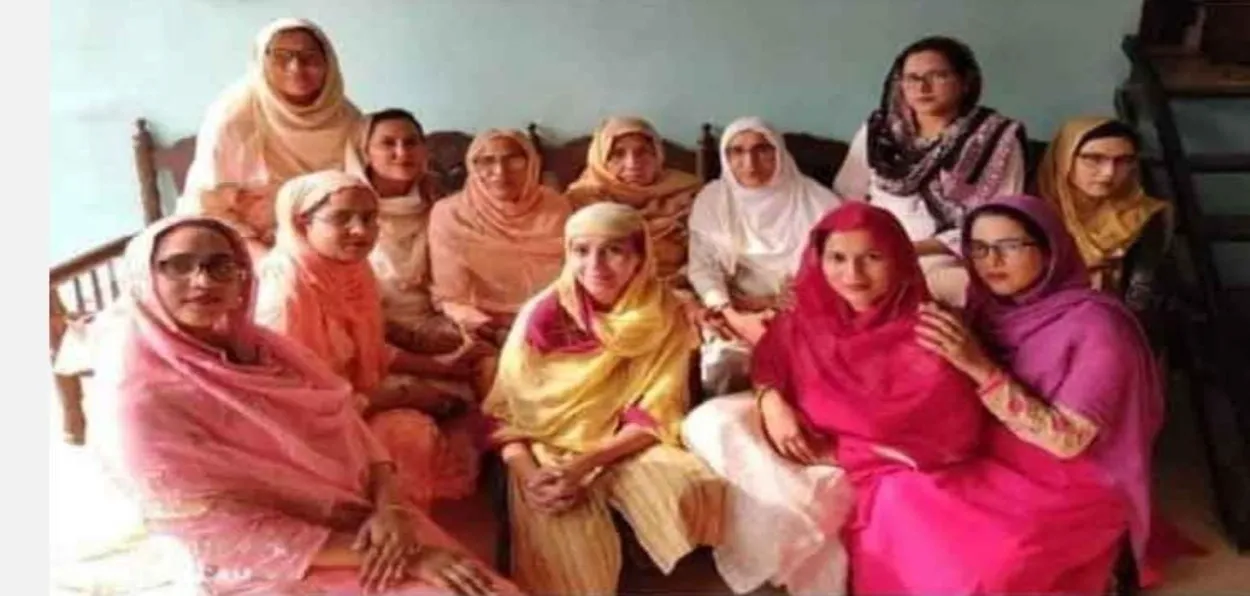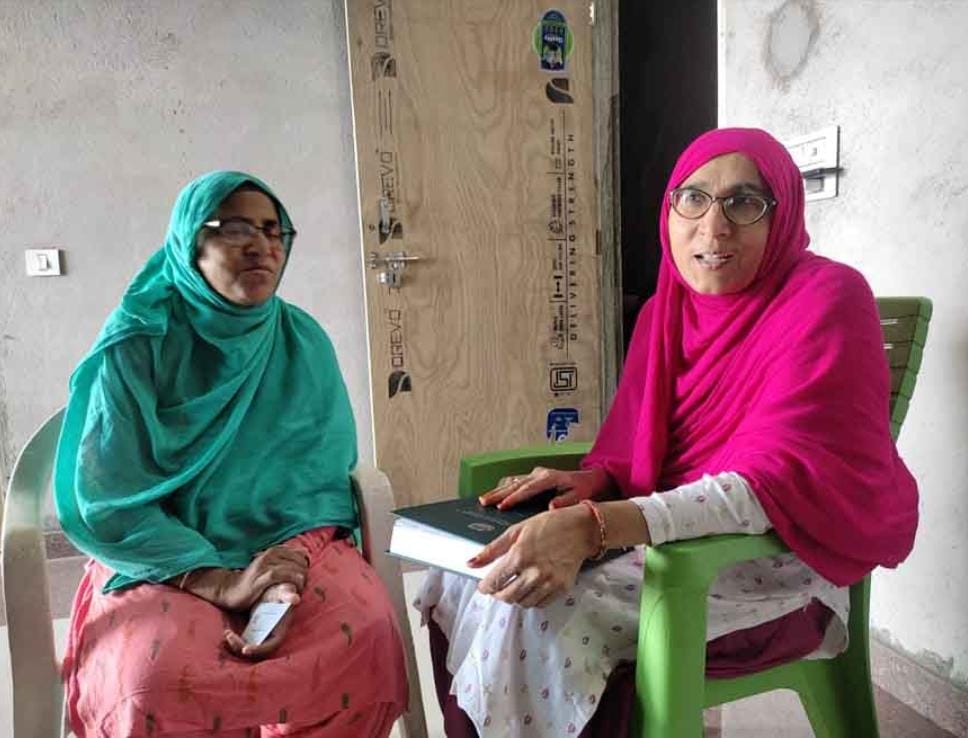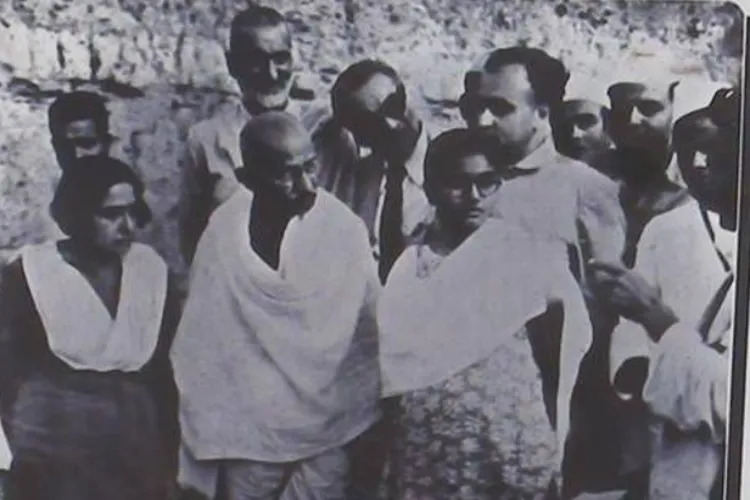Nuh, HARYANA:

When I met Shabnam and her elder sister Nafisa after a flight of 37 steps of a half-built high-rise building on the Nuh-Tawadu road, I couldn’t gauge the high spirits of these two women, their nine sisters, and late father Niyaz Khan in our brief meeting.
Niyaz Khan, a former revenue officer in the Punjab Waqf Board, has left this world, but he is remembered for bringing about the change in the mindset of Muslims in Nuh through his act of giving a good education to all his 11 daughters.
Not only he educated his daughters but 8 of them became teachers and are carrying on the mission of spreading education in one of the most backward areas of India.
In a conversation with Awaz-The Voice, Shabnam says, “I and my sisters who are teachers make efforts to ensure that girl students in our respective schools do not give up on their studies midway and drop out of school. We also make extra efforts to see that besides retaining the numbers, more girls are enrolled in the school.”
Shabnam says that to retain girl students they call the parents of students to school to make them aware of the importance of education.
Shabnam, who worked in an NGO for a long time before joining the government school, says, “Due to my experience with an NGO, I face lesser difficulties in this job (retaining girl students in school) in comparison to other sisters. My experience of working on child education in an NGO is helping me.”
She says that increasing the number of students helps in upgrading schools. Shabnam is now TGT i.e. Trained Graduate Teacher in Rithoda vuillage. The primary school where she worked earlier has since been converted into a middle school.

Shabnam’s elder sister Nafisa says that many parents come to consult her and all her teacher-siblings. They ask them how to ensure a good future for their daughters. “Many times strangers stop them at the bus stand for paying compliments and telling us that they want their daughters to be like us.”
Nuh remains one of the most backward districts of Haryana, where women are struggling to rise amidst diehard patriarchy, old-fashioned thoughts, rampant illiteracy, and a lack of basic facilities. The dropout rate of girl students is the highest in the state.
Although there are many schools and colleges in Nuh, it has no university and women must go outside for higher education.
Asif Ali Chandaini, General Secretary of Mewat Vikas Manch, says, about 70 to 80 percent of the population of the district survives by doing petty and menial jobs. In such a situation, parents have financial constrains, and safety of daughters as issues in their minds while deciding on educating their daughters. In the end they prefer to keep their girls at home.
Defying such conservative traditions in the decade of nineties, Niyaz Khan decided to send his daughters for higher education.
Nafisa, the eldest of the sisters, who spoke with Awaz-the voice said their father had a transferable job. As long as the family was living outside Mewat, he did not face any problems in educating his daughters. However, after he met with an accident, took voluntary retirement and shifted permanently to Nuh in 1993, he faced stiff opposition to sending his daughters to colleges and universities.
Her father was a resident of Chandaini village, about four kilometers from Nuh. The people there are progressive and clear about the aware of education.
Praising her father and grandfather, Shabnam says, “Both were very great people. Dada (paternal grandfather) never stopped us from going to college and school. In the nineties, when the environment was worse than what you see today, he not only continued to give higher education to his daughters but also sent them out of Nuh for studies.”
Shabnam has also studied law; her husband is a practicing advocate in Sohna.
Despite the regressive environment around them, Niyaz Khan’s eight daughters became teachers. They are employed in government schools. Shabnam says teaching was their choice.
Shabnam has five children. One of her daughters has a Master’s degree in Fine Arts from Banaras. Her other children are also into masters and other higher education courses.
Nafisa’s elder son is pursuing a Ph.D. in Physics.
Shabnam and Nafisa say that they care least about others’ opinions when it comes to their children’s education. “Our children are moving forward by choosing their careers. We are only supporting them,” they said almost in unison.
According to Nafisa, the children of the younger sisters are also pursuing education at different levels.
She tells that things are changing for Mewati Muslims on the education of girls. However, the change is quite slow.
Nafisa says that there is a trend of girls dropping out after fifth or eighth standard and being sitting at home.
Many parents prefer to send their daughters to Maktab, local Madrasa, instead of sending them to school.
Shabnam’s disciple Mohammad Rafiq, who has done his Ph.D. on the topic of Mewat’s female Sarpanch, says that the picture of Mewat can change if the authorities present these eleven sisters as ‘role models’.
The 11 sisters becoming the face of women’s education and empowerment can bring down the dropout rate significantly. However, both the sisters do not agree on this.
They feel the thrust on women’s education has to begin from their homes of Muslims.”Everything cannot be left to the government; the politicians of Mewat have to show willpower,” Shabnam says.
She said once she invited the local politicians to a meeting of Urdu teachers, but none of them came. She also this was the most discouraging since most of them are her relatives.
Despite this, they do not show any special seriousness towards education.
Niyaz Khans’s daughters:
Nafisa: JBT & B.Ed, Govt Teacher
Shabnam: MA, LLB, JBT, government teacher
Afsana: JBT, MA, B.Ed.
Farhana: JBT, MA, B.Ed. government teacher
Shahnaz: JBT, MA, B.Ed teacher in private school
Ishrat: B.A
Nusrat: Lecturer in JBT, MA, MEd and employed in a Polytechnic
Ana: JBT, MA B.Ed, Govt Teacher
Razia: MBA and working in private sector
Nazia: Diploma in Architecture, works in private sector
Bushra: MA, B.Ed
source: http://www.awazthevoice.in / Awaz, The Voice / Home> Stories / by Malick Asghar Hashmi / May 04th, 2023









